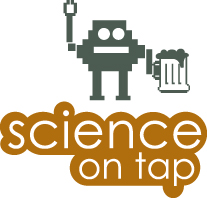In “America’s Scientific Revolutionaries,” a multiyear project funded by the Richard Lounsbery Foundation in the lead up to the 250th anniversary of the Declaration of Independence, the APS will illuminate that overshadowed scientific revolution that ran between 1763 and 1804. By fueling the launch of the Society’s Center for the History of Science, this project elevates the vast contributions of Members and their underrecognized contemporaries in forging an American scientific community with international influence.
This conversation highlights—and begs comments about—our attempt to reach a broad audience in service of this mission. Listen, lament, celebrate, and opine as we take stock of our progress over the last ten months in our efforts to reach middle schoolers, the educated public, and Nobel laureates alike. See you there!
About the speaker:
Jeffery R. Appelhans, PhD, specializes in the political and religious culture of colonial, Revolutionary, and early America, as well as book history and bibliography. He is currently Richard Lounsbery Postdoctoral Fellow at the American Philosophical Society preparing “America’s Scientific Revolutionaries” in anticipation of 250th anniversary of the Declaration of Independence. Since 2019, he has worked on the on the Society’s Members Bibliography and Biography, 1743–1865, launching soon.
He is otherwise revising his book manuscript, tentatively titled “The Creation of American Catholicism: From the Revolution to the Early Republic,” a story of how the Revolution and the early republic created American Catholicism by unleashing the forces that established Catholics as accepted and influential citizens in early America. The novelty of this research has generated wide and generous support—most notably and recently a year-long writing fellowship from the National Endowment for the Humanities.
His work appears in the Journal of the Early Republic, the Proceedings of the American Philosophical Society, The Public Historian, Church History, and public venues.

